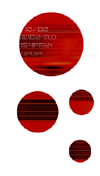

 |
 |
scientific program electroacoustic musics around set theory music analysis tools musicnetwork workshop professional week ircam forum workshops free software for music international multichannel sound forum performing arts and technologies dance and new technologies access to sound heritage thematic evenings demonstration stands artistic program set theory concert music in creation concert cursus concerts opera "one" sound installations open house weekend technologies gallery conferences demonstrations workshop-performances workshops and films ircam laboratories linux install-party concert distribution on internet associated events resonances night at glaz'art émilie simon at la cigale suguru goto reseaunances guided tours of ircam and the multimedia library resonances in pictures resonances 2002 
|
JOHN YOUNGSound morphology and the articulation of structure in electroacoustic music.AbstractIn electroacoustic music we have the capacity to manipulate sound in an unprecedented number of dimensions - especially to transform, disassemble and remix both natural and digitally created sound-objects over time. This potential for composers to create complex hybrid sounds, and many variants of them, can make the process of establishing and developing musically useful relationships amongst materials a complex one. This paper focuses on the potential in electroacoustic composition for the morphology of sound structures to function at different structural levels within a musical argument. It is argued that the morphological patterning and behaviour of sound can be used to articulate recognisable and transferable musical identities. These articulations can be controlled by the composer and perceived by listeners to function across different time scales in music-from long-term direction and focus of sections to strings of phrases as well as the unfolding in time of individual sound-objects. This is done with particular reference to three works - Wind Chimes by Denis Smalley and Tongues of Fire and Imago, both by Trevor Wishart. |
|||||||||||||||||||||||||||||||
 |
Organization Committee Copyright Ircam-Centre Pompidou 2003 |